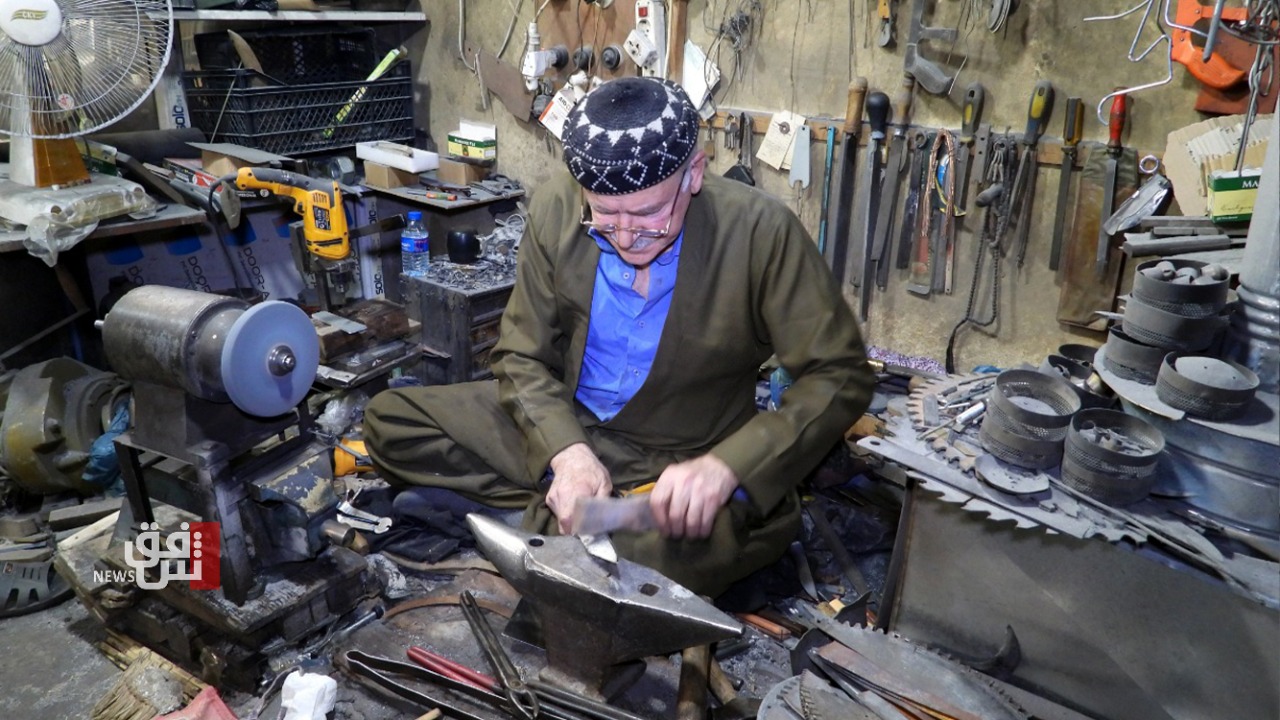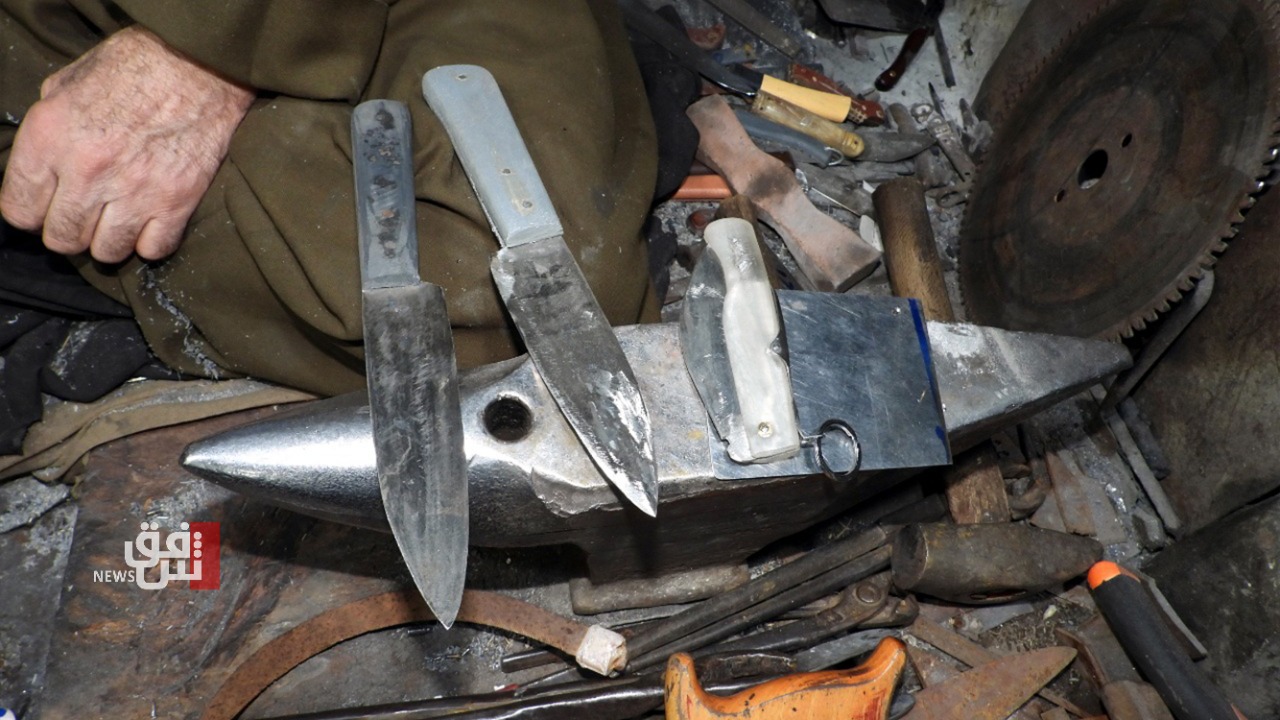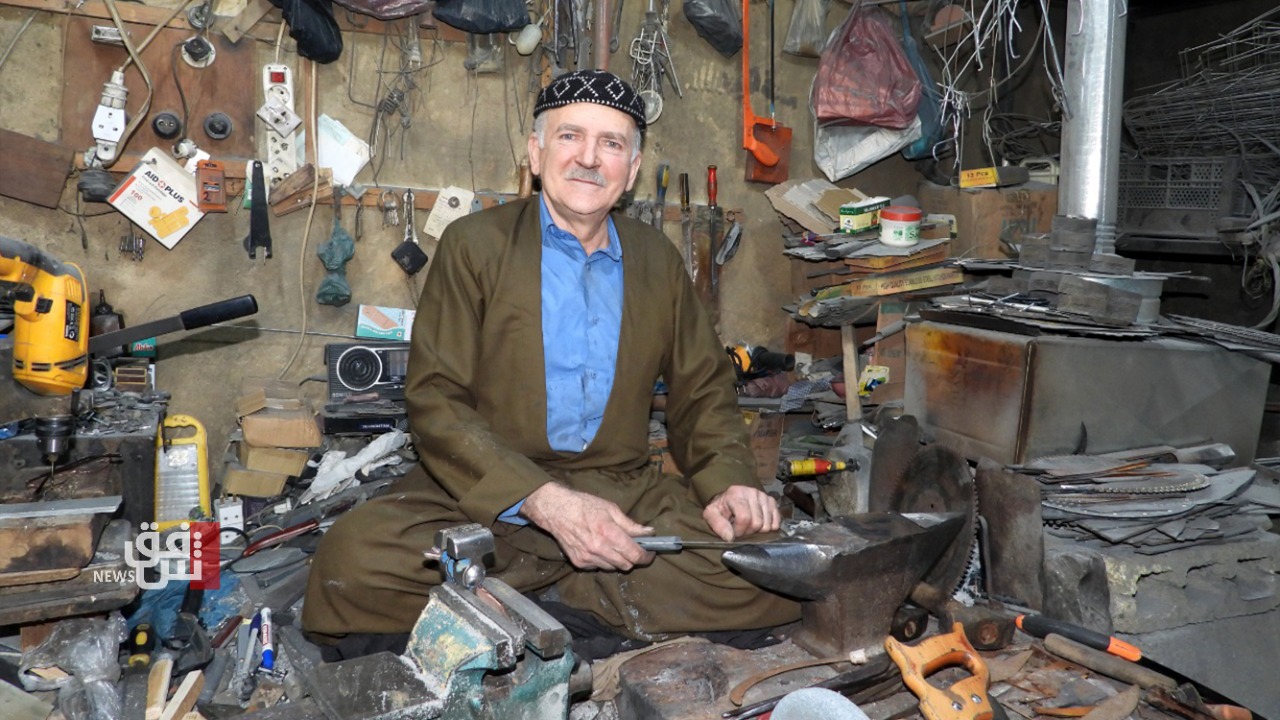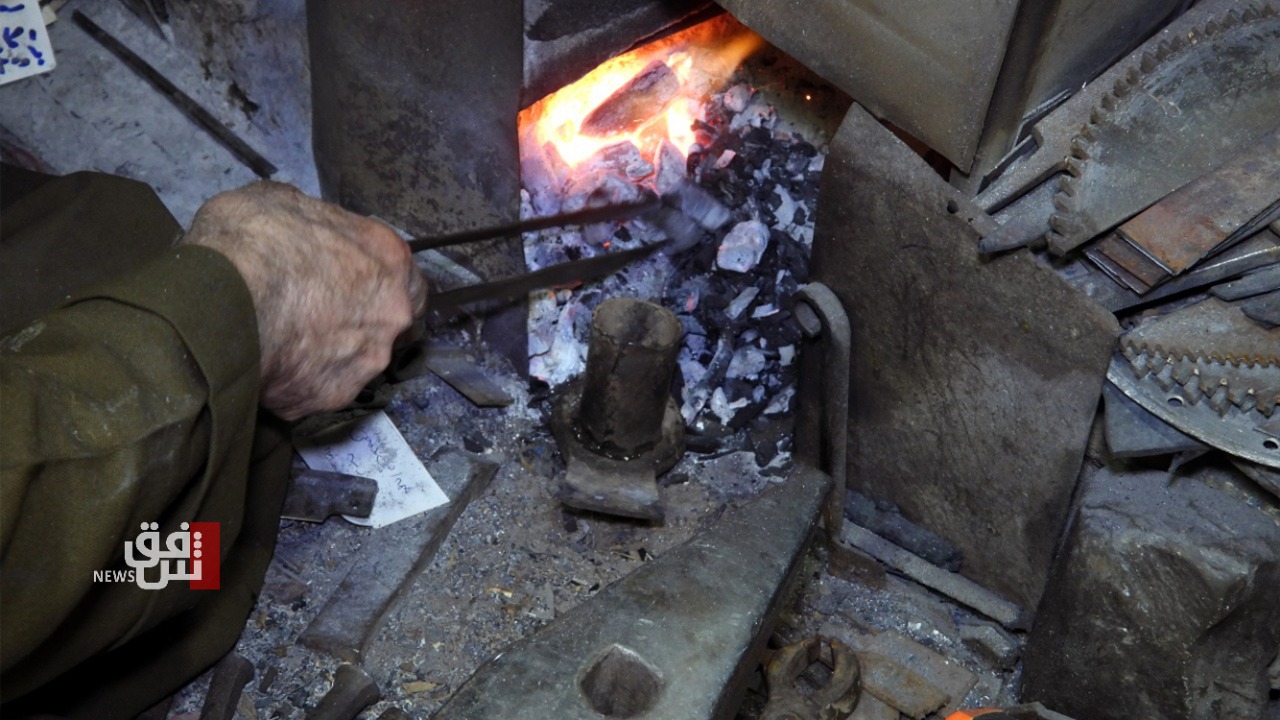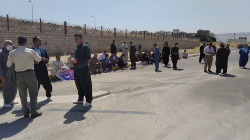In Al-Sulaymaniyah, Younis Taweli fights time with his knives
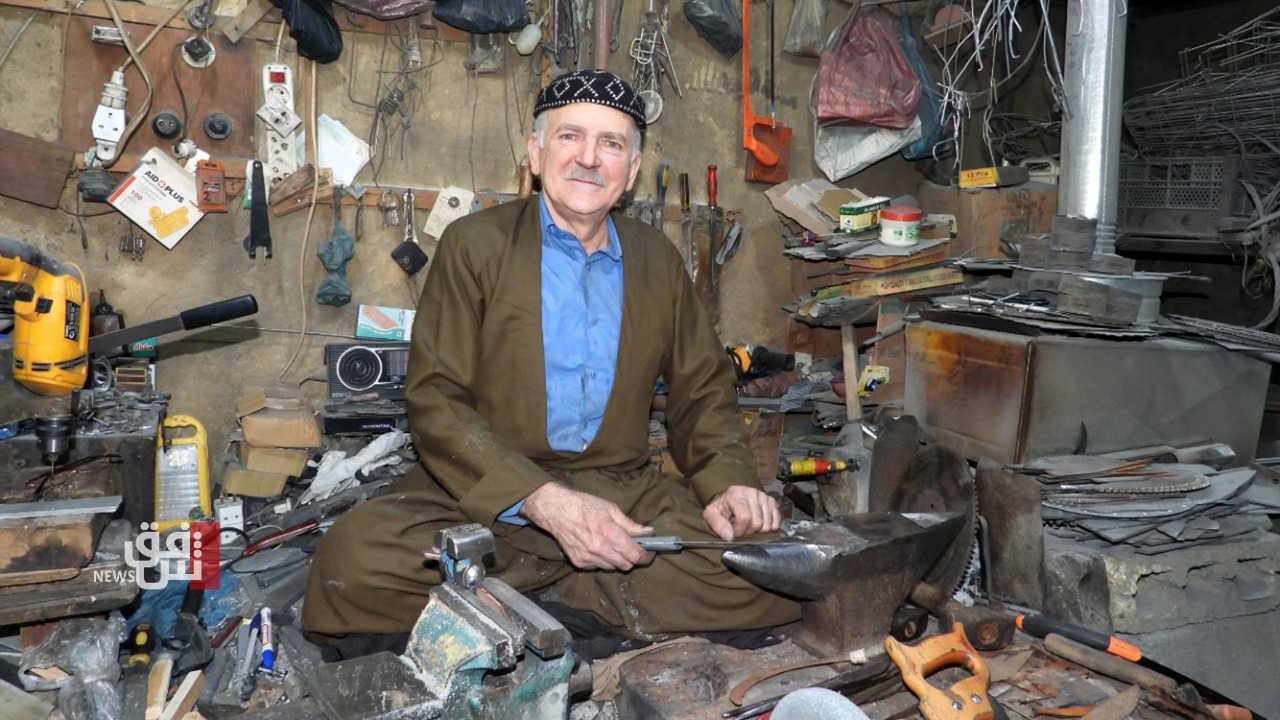
Shafaq News / Despite the great cultural and technological development in all fields - especially industrial ones - some craftsmen are still proud and engaged in long disappeared professions.
Several types of knives are found in every house’s kitchen.. to cut meat, bread, vegetables, etc.
Humans have been using the knife since ancient times - when it was nothing but a blade of stone. The knife evolved after the discovery of metals and now there are many factories specialized in manufacturing and producing thousands of knives within hours - and so the handmade knives are on the verge of extinction.
The knife industry is a profession that requires effort, skill, and patience - especially if machines are not used in the process. This profession has almost disappeared in Kurdistan, yet some people are still determined to fight against time and the modern industrial era, making knives at the request of those wishing to acquire them.
Younis Taweli is an elder from Al-Sulaymaniyah. He owns a small workshop where he spends his day making knives. For 50 years, he has been making knives for his city’s people at reasonable prices.. his customers describe him as professional and honest, they turn to him to make, sharpen, and repair their knives, “I inherited this profession from my father who inherited it from his father. Since my childhood, I used to accompany my father in his shop in the border district of Tawela in Al-Sulaymaniyah".
"I have been working hard for 50 years in this small shop in Al-Sulaymaniyah market", he said.
"despite many cheap imported knives - because of its metal’s poor quality - my work is still booming because the knife industry needs manual labor, strength, and mastery.. Most of my customers are butchers, restaurant owners, and farmers”, Younis added.
Taweli pointed out that the knives’ prices range from 5,000 dinars for a small knife to 10,000 dinars for a large one.
"It is an important handicraft. Most countries are interested in and support their heritage industries, but unfortunately, here some handicrafts have disappeared because of imports”, Younis Taweli concluded.
